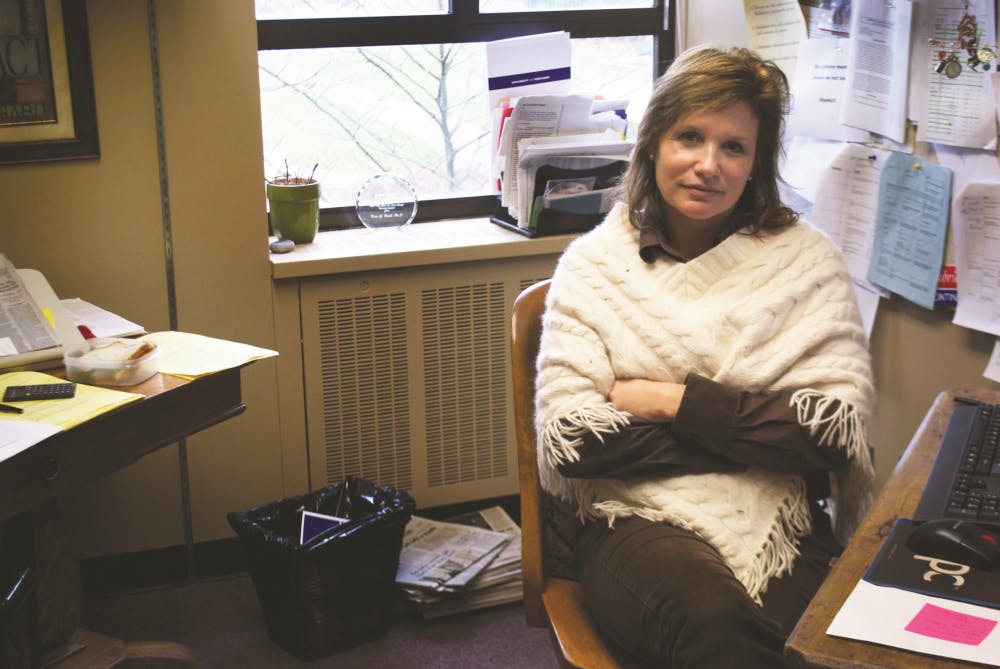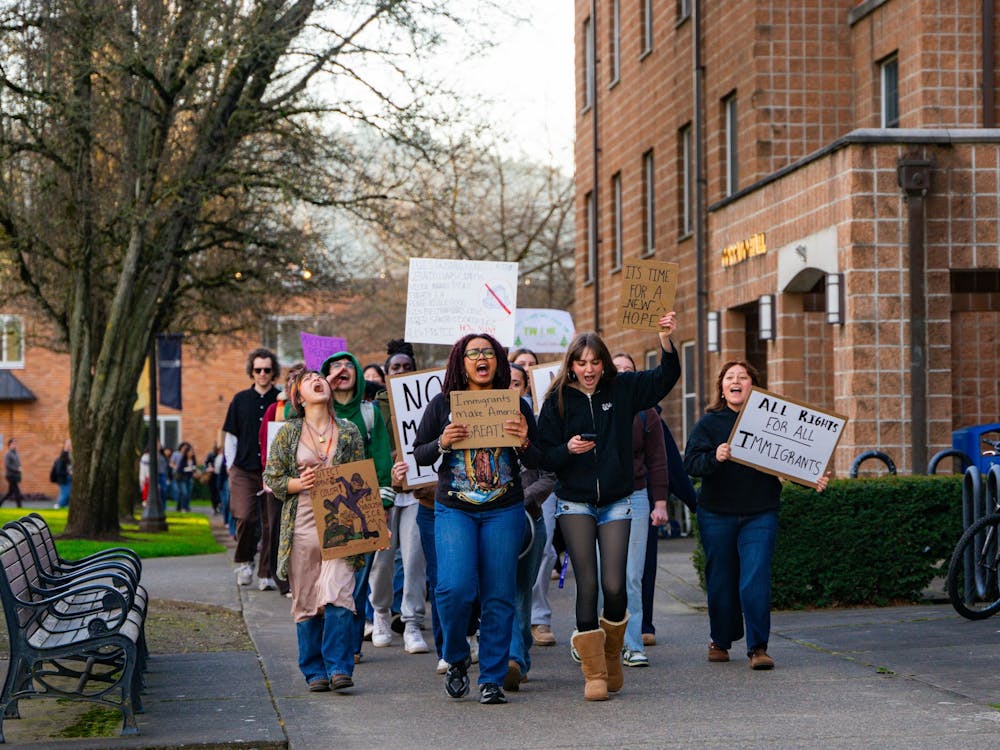A team of researchers at UP study the Occupy movement to better understand its cultural meaning
(-- The Beacon)
By Kate Peifer Staff Writer peifer14@up.edu
It occupied Portland, then it occupied the headlines and now it's occupying research at the University of Portland.
Communication studies professors Renee Heath and Courtney Fletcher and economics professor Bill Barnes are conducting a research study to understand what Occupy Portland is really about.
The study is a part of Heath's organizations and natural settings class and includes the participation and research of several volunteer undergraduate and graduate students.
Heath hopes the study will allow students to better understand Occupy Portland, its cultural phenomenon and its system of meanings, also known as ethnography.
The study will be published in February 2012 after a complete narrative is written.
Q&A with communication studies professor Renee Heath
Q: What is the main goal of the study?
A: The students were asking questions to understand what the occupation of Portland was, and they were studying its culture. After about five days we thought, as a team of researchers here, we are interested in their processes. The whole movement is very committed to civil discourse, consensus decision-making and processes such as those.
Q: Did you go down once together, multiple times or do students go down on their own time?
A: Both. We have been down there since week one. Usually there's two to three of us down there at different times. We have gone down together when there was still a camp. We walked around with video cameras and interviewed people.
Q: Who have you interviewed specifically at Occupy Portland?
A: We were interested in the organized aspects so we interviewed librarian volunteers and that included a freelance illustrator who's published in the New Yorker. They are volunteering their time. We also interviewed a young couple with their young son who stopped in the art tent because they wanted to teach him about democracy. We interviewed the homeless, we interviewed–
Q: –everyone?
A: Yes! And we are still talking to people.
Q: What is different with Occupy Portland as opposed to other movements?
A: I study communication processes so I'm not an expert on social movements but, definitely, this resistance movement is focused on peaceful, transparent, democratic process and very committed to not having a leader. They're very concerned about power, so in that sense, its principles and its processes are very different than other movements we've experienced in this country. It is similar in the way that it's devoted to nonviolence.
Q: What do you hope to achieve with this study and what will the outcome be?
A: Two things: I'm working with a team of folks here including my colleague Dr. Courtney Fletcher and Dr. Bill Barnes. He will help us paint the macro-economic context for the movement. That said, we are submitting a paper in February. Dr. Fletcher would like to put together a visual exhibit, and our focus is on telling a narrative about what the movement's about and one that's a little richer than catching the drama of it.
Q: What do you predict will happen with the movement since the camps were terminated?
A: I think it's energized. In a sense, the camp became a huge responsibility for the movement. They felt very committed to each other, and I'm sure they're still committed to each other, but the movement is going to be energized around various events and issues.
Renee Heath (Talley Carlston -- The Beacon)








